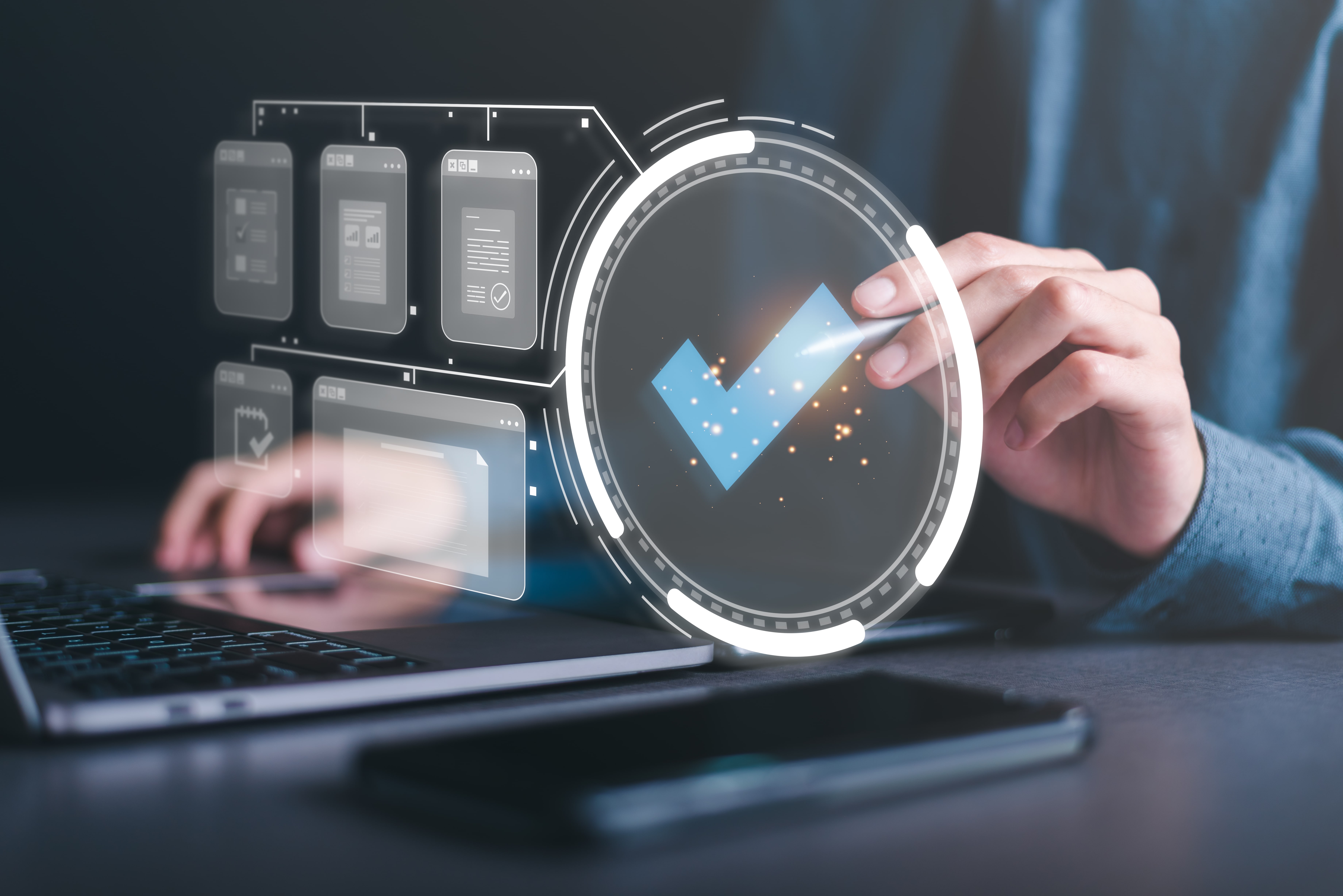
Business verification has evolved from a checklist item into a core pillar of global compliance. Whether you run a bank’s risk desk, a venture fund, a procurement team, or a B2B marketplace, verifying companies is now fundamental to trust and operational security.
In 2025, the business verification report has become the definitive proof of legitimacy for any commercial relationship. It ensures that partners are authentic, financially sound, and compliant with international regulations.
As global rules tighten and fraud schemes grow more sophisticated, organizations turn to BusinessScreen.com for investigator-verified business verification services that combine technology, legal analysis, and on-the-ground research to deliver certainty in every transaction.
For foundational context, see Due Diligence: Definition, Types, and Real-World Examples to understand how business verification fits into the broader compliance landscape.
A business verification report is a comprehensive document that confirms a company’s identity, ownership structure, registration status, financial health, and reputation. It serves as an independent validation tool for Know Your Business (KYB), anti-money laundering (AML), and corporate due diligence programs.
Unlike basic database lookups, a verification report compiled by BusinessScreen.com is investigator-driven and source-verified. Analysts access official registries, tax records, corporate filings, sanctions lists, litigation databases, and adverse-media feeds to authenticate each detail.
This rigorous process ensures data accuracy and global regulatory alignment. Beyond confirming existence, the report reveals a company’s history, structure, and risk profile—giving banks and investors the transparency they need to comply with FATF and FinCEN guidelines.
Learn more about global verification standards in Global Business Verification: How to Check Companies Across Borders.
The corporate landscape has never been more complex. Shell entities, synthetic identities, and cross-border ownership chains obscure who really controls a business. Global regulators are responding with strict beneficial-ownership and AML rules.
Financial institutions must now demonstrate clear KYB procedures before onboarding clients or partners. FinCEN’s 2024 Beneficial Ownership Rule requires detailed UBO records, while the EU AMLD and FATF recommendations demand ongoing monitoring.
According to Deloitte, companies that institutionalize business verification cut third-party fraud losses by over 60 percent and reduce regulatory breach risk by nearly half.
Verification reports are therefore vital not just for banks and fintechs but for any organization engaged in procurement, investment, or supply-chain operations. For more insight, see Beneficial Ownership Verification: Why It’s the Cornerstone of Modern Due Diligence.

Every verified report provides a multi-layered look at a company’s foundation. It details the registered entity name, legal form, and jurisdiction of incorporation along with its tax identification numbers and operational status.
Ownership analysis maps shareholders and ultimate beneficial owners (UBOs), identifying control percentages and possible nominee arrangements.
The report also profiles directors and officers—screening for prior insolvencies, criminal records, or sanctions exposure—and summarizes the corporate hierarchy to highlight parent or subsidiary links.
It evaluates financial stability through public records and credit data and flags regulatory licenses, court filings, and material litigation.
To protect against fraud and reputational damage, each subject undergoes sanctions, PEP, and adverse media screening. These checks search sources like OFAC, UN, and EU lists for any negative association.
Together, these elements give stakeholders a complete picture of who they’re doing business with. For an example of how these components come together, see the Company Background Check Guide on BusinessScreen.com.
Here is the structured workflow used by compliance and risk professionals:
For detailed multi-jurisdiction guidance, see the Global Business Verification Guide.
You can also review How to Check If a Business Is Legit for practical verification tips.
Each of these applications benefits from BusinessScreen.com's investigator-verified approach and access to global records.
Learn more in the Reputational Due Diligence Guide and Corporate Investigations Manual.
Corporate registries differ widely across jurisdictions, and many offer limited or outdated information. Bad actors exploit these gaps to create synthetic entities or hide behind shell structures.
Automated API-only tools often fail to detect discrepancies in ownership or documentation. Investigator oversight — as used by BusinessScreen.com — adds human analysis to cross-verify records, confirm authenticity, and interpret complex legal filings that algorithms miss.
This hybrid approach reduces false positives and keeps clients fully compliant with global transparency mandates.
Partnering with a specialized provider delivers multiple advantages:
See the Corporate Investigations Guide for examples of how these benefits apply across industries.

BusinessScreen.com combines automation with certified investigators to produce accurate, non-FCRA business verification reports. The system integrates government data, court records, sanctions lists, and adverse-media feeds into one comprehensive platform.
Each report undergoes final review by an experienced analyst to eliminate false matches and validate sources. Optional continuous monitoring keeps client records updated as ownership, regulations, or risk profiles change.
Clients use BusinessScreen.com for vendor vetting, investor due diligence, and cross-border verification in regulated and emerging markets alike.
For an in-depth walk-through, see How to Check If a Business Is Legit and KYB vs KYC: Complete Guide to Compliance.
The business verification report is no longer optional — it is a compliance requirement and a strategic advantage. As global rules intensify and fraud threats evolve, investigator-verified verification ensures that your partnerships are legitimate, transparent, and sustainable.
BusinessScreen.com stands as the industry leader in accurate business verification services, helping financial institutions, investors, and enterprises verify companies with confidence.
Learn more about BusinessScreen.com’s business verification solutions and start building trust into every transaction today. Share Our Service & Earn $200 in Credits.
What does a business verification report include?
It summarizes legal identity, ownership, management, financial health, sanctions status, and adverse media findings, all verified by experienced investigators.
How long does verification take?
Domestic verifications are typically completed within 24–72 hours; complex international cases may require five to seven days.
What documents are required?
Incorporation certificates, shareholder records, beneficial ownership declarations, tax filings, and official ID for directors or UBOs.
Is business verification the same as KYB?
KYB is the regulatory framework; business verification is the practical process that fulfills KYB documentation and screening requirements.
How does BusinessScreen.com verify internationally?
By accessing global registries and local investigator networks to ensure complete and compliant coverage.
Why is beneficial ownership verification critical?
It reveals hidden control structures and ensures transparency as mandated by FATF and FinCEN. Learn more in the Beneficial Ownership Verification Guide.